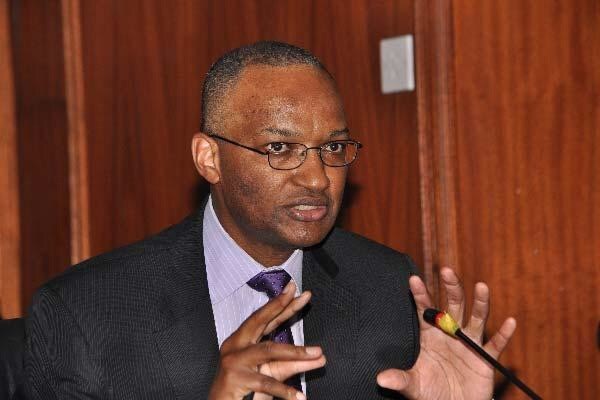×
The Standard e-Paper
Fearless, Trusted News

The Central Bank Governor Dr Patrick Njoroge has been given four more years to pursue his campaign to reform the banking sector.
President Uhuru Kenyatta also reappointed CBK Chairman Mohammed Nyaoga and Sheila M’Mbijjewe as Njoroge’s deputy in what is seen as a vote of confidence in the current team at the helm of the regulator.